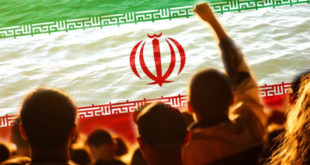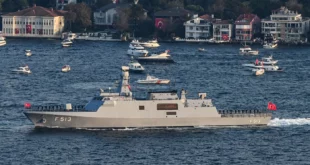Six foreign medics convicted of deliberately infecting hundreds of Libyan children with HIV were freed on Tuesday after a partnership deal between Tripoli and the European Union ended their eight-year ordeal.Their return to Bulgaria ends what Libya’s critics called a human rights scandal and lets the long-isolated north African state complete a process of normalizing its ties with the West.
Bulgarian President Georgi Parvanov pardoned the five nurses and a Palestinian doctor who recently took Bulgarian citizenship after they arrived in Sofia on a French jet.
The medics had one point been condemned to death but have always said they were innocent and had been tortured to confess.
“I know I am free, I know I am on Bulgarian soil, but I still cannot believe it,” 48-year-old nurse Christiana Valcheva said as the medics and their families wept and hugged each other at the airport.
They were freed after the EU, which Bulgaria joined this year, agreed a last-minute deal that Libyan Foreign Minister Mohammed Abdel-Rahman Shalgam said would allow “full cooperation and partnership between Libya and the European Union”.
U.S. Secretary of State Condoleezza Rice said Libya’s decision opened a path to better links with the West. “This is an important step in Libya’s continuing positive re-engagement with the international community,” Rice said in a statement.
Bulgaria and its allies in Brussels and Washington had suggested not freeing the nurses would hurt Libya’s efforts to emerge from more than three decades of diplomatic isolation imposed for what the West called its support of terrorism.
It began the process in 2003 by scrapping a banned weapons program and returned to mainstream international politics.
“We hope to go on further normalizing our relations with Libya. Our relations with Libya were in a large extent blocked by the non-settlement of this medics issue,” said EU Commission President Jose Manuel Barroso.
COOPERATION DEAL
Shalgam said the deal involved EU support and assistance for the more than 400 infected children in European hospitals for the rest of their lives.
It also provides for the rehabilitation of two hospitals and a medical centre in Benghazi, the Mediterranean port city where the HIV outbreak occurred. The EU also offered assistance to Libya in education, archaeology and stemming illegal migration.
EU External Relations Commissioner Benita Ferrero-Waldner travelled to Tripoli with Cecilia Sarkozy, the wife of the French president, to help free the medics and flew with them to Sofia. She signed the deal with Libya, a European source said.
Nineteen Bulgarian medical workers were initially detained in 1999 and six stood trial. One Bulgarian doctor was released in 2004 when the six medics were sentenced to death.
Foreign HIV experts testified the infections started before the six arrived at the hospital, and were more likely the result of poor hygiene.
Parvanov said in an address to Bulgarians that the only fair resolution to the eight-year saga would have been an acquittal and expressed regrets that Libyan courts ignored scientific proof that the six were innocent.
The victims’ families have said the nurses were part of a Western plot to undermine Muslims in Libya and the case sparked outrage in Benghazi where 56 of the children have died.
Human rights group Amnesty International welcomed the medics’ release and urged Libya to proceed with much-needed justice reforms to ensure such a case never happened again.
French President Nicolas Sarkozy had pledged to make the medics’ release a foreign policy priority and said he would visit Libya on Wednesday to help Tripoli’s reintegration.
Neither France nor the EU had made any payment to Libya to ensure the nurses’ release, Sarkozy said.
Last week Libya commuted the death sentences against the six to life imprisonment following the payment of a $460 million financial settlement — $1 million to each HIV victim’s family.
That paved the way for the nurses to return home under a 1984 prisoner exchange agreement.
The medics, who looked in good health, and their families will stay for the next few days in the presidential residency on the outskirts of Sofia where they will undergo medical checks.
The Palestinian doctor, Ashraf Alhajouj, said he will soon travel to the Netherlands to visit his family there.
“I want to be a normal man again… I may stay and live in Bulgaria,” he told private BTV channel in Bulgarian.
The nurses left the relatively poor Balkan country of 7.8 million people in the late 1990s to work in Libya, where health care salaries were much higher.
The country has begun opening its big energy reserves to foreign oil firms and the United States said this month it was sending its first ambassador to Tripoli in 35 years.
 Eurasia Press & News
Eurasia Press & News


